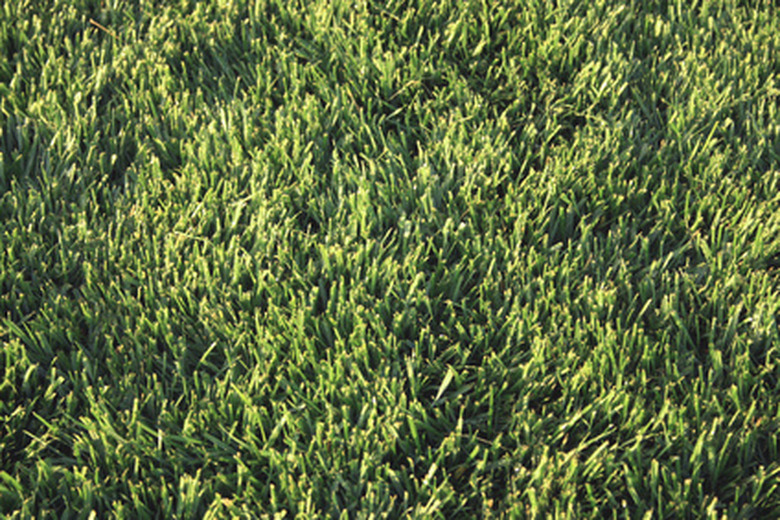Bermuda Grass Vs. Crab Grass
The biggest difference between Bermuda grass and crab grass is that Bermuda grass is a highly desirable lawn grass and crab grass is a highly undesirable weed that spreads quickly, despite a lawn owner's best control efforts. One way to cultivate Bermuda grass and discourage crab grass is to practice a regular maintenance schedule.
Growing Conditions
Bermuda grass grows best in fertile soils but will adapt to other types of soils, according to "Jerry Baker's Green Grass Magic" by Jerry Baker. As a warm-season grass, Bermuda grass tolerates both arid and humid climates. However, it will go dormant in the winter.
Crab grass targets lawns that are thin, in distress, suffer from low fertility, closely mowed or have bare spots. As an annual, the seed heads appear in the summer and fall and grow unabated, turning the lawn a brownish-red color.
- The biggest difference between Bermuda grass and crab grass is that Bermuda grass is a highly desirable lawn grass and crab grass is a highly undesirable weed that spreads quickly, despite a lawn owner's best control efforts.
Characteristics and Treatment
Bermuda grass tolerates heavy foot traffic and establishes deep roots, making it highly drought and heat resistant, according to "Lawns" by Nick Christians and Ashton Ritchie. Regular maintenance, such as watering and fertilization, is needed for the grass to keep its color. There are many hybrid versions of the grass that are much finer textured than common Bermuda grass, which is coarse.
Crab grass lays down shallow roots. There are several different types, including large hairy crab grass, Southern crab grass and smooth crab grass. All varieties are similar in that they have thick, heavy stems and do not tolerate shade. Treat crab grass before it arrives by using a pre-emergent herbicide in the spring before the temperature reaches 60 degrees Fahrenheit.
- Bermuda grass tolerates heavy foot traffic and establishes deep roots, making it highly drought and heat resistant, according to "Lawns" by Nick Christians and Ashton Ritchie.
Similarities
Both Bermuda grass and crab grass are very aggressive growers. Bermuda grass spreads by creeping, and, unless it is contained, common Bermuda grass will become a weed by invading flower beds, according to the "Complete Guide to Gardening" by Better Homes and Gardens.
Crab grass spreads because of the presence of seed heads that branch from multiple locations on the thick stalks. When crab grass is pulled from the ground, the seeds drop and resow themselves.
References
- "Jerry Baker's Green Grass Magic"; Jerry Baker; 2001
- "Lawns"; Nick Christians and Ashton Ritchie; 2002
- "Complete Guide to Gardening"; Better Homes and Gardens; 1979
